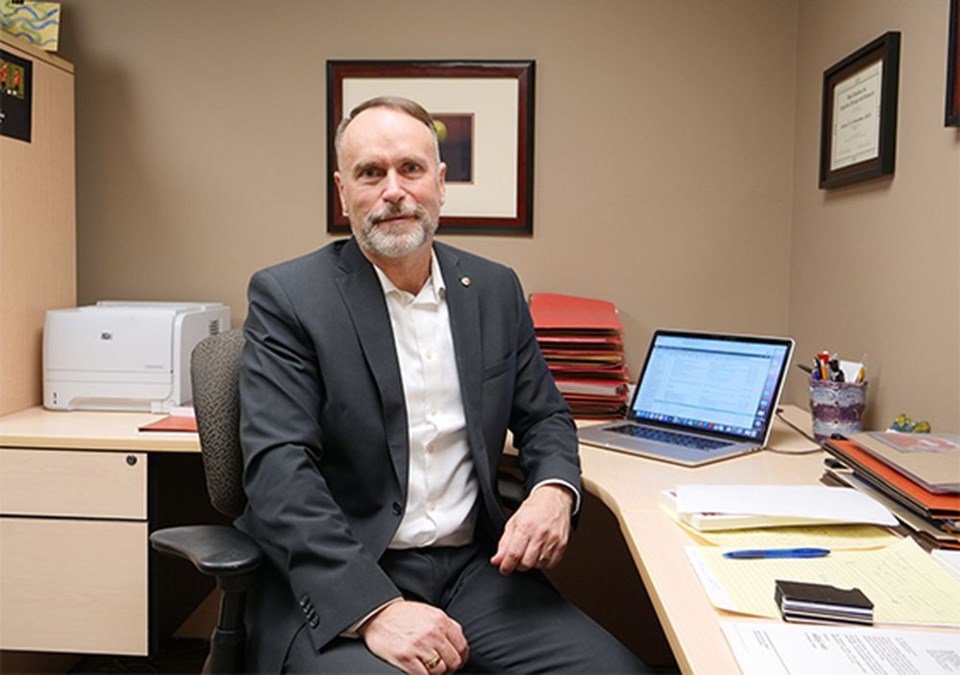Over the past week, the hysteria over COVID-19, the novel coronavirus, hit a tipping point with the World Health Organization declaring it a pandemic, stated the University of Regina website.
Wide-sweeping actions have been taken around the world in an effort to curb new cases with actions such as limiting international travel, and bans on large public gatherings in many instances. With the first case of coronavirus recently arriving in Saskatchewan, residents are at a heightened sense of awareness and are taking extra precautions to protect themselves.
Dr. Gordon Asmundson, a University of Regina professor in the Department of Psychology, a Registered Doctoral Psychologist, Royal Society of Canada Fellow, and Editor-in-Chief��Journal of Anxiety Disorders and Clinical Psychology Review, a researcher with a focus on health anxiety, encourages people to remain calm and make rational decisions in light of increased public fears.
How has the current COVID-19 pandemic manifested itself in the general public?
There has been an increase in distress and anxiety nationally with respect to COVID-19. Human beings do not like uncertainty, which is where behaviours like panic buying, such as stocking up on toilet paper comes in. People like to feel that they have some degree of control, and, while we may not be able to control the actions of a virus, we do have control over our own thoughts, decisions, and behaviours. Humans deal with uncertainty every day. Every aspect of life is riddled with uncertainty, and people are forgetting that they are really good at dealing with it!
How has anxiety increased in the last few days?
Anxiety concerns are escalating. Poll numbers from early February found that one-third of Canadians are experiencing anxiety with regard to COVID-19. The same poll from a few days ago showed those numbers have spiked to almost 50 per cent.
What role has COVID-19 played in escalating fear?
Everyone has some degree of health anxiety, some very high and some not. Those with high health anxiety feel that they are at increased risk of acquiring the virus or may mistake benign changes in their body, such as a cough or body ache, as symptoms of the infection. Those with low health anxiety, on the other hand, may feel that there is little risk of them acquiring the infection and they may not take proper precautions to help stop its spread.
What role has media played in the increased fears?
The media and social media are important sources of information, but as we have seen coverage shift from frequently, to hourly, to almost every moment, it has overloaded us and we may not be getting any breaks from COVID-19. This is increasing public anxiety and insecurities.
Are people overreacting?
When something appears to be a big deal, people look for big solutions. But the reality is that the solution likely lies in the small things, like washing your hands, practising responsible social distancing, and staying home if you are sick.
Has Canada been slow in its response? What about the University of Regina?
The United States, for example, has had incidents of infection at a higher and faster rate. With cancellations of things like sporting events, school closures, and moving classes online, those decisions were made due to the rate of infection in efforts to “level the curve.” Canada and the U of R are on the right path and making decisions with the best interest of everyone in mind. These decisions are evidence based and not irrational.
Why is being rational important?
An unfortunate characteristic of fear is that it is also contagious. When we see people responding with fear, it is natural to do the same. Fear often promotes irrational thoughts, decisions, and behaviours. In the wake of this current pandemic I recommend that people try to maintain balance, remain kind to others, and try to take a flexible approach to the life changes we are being asked to make to mitigate viral transmission.��Educate yourself about recommended actions and decide what is best for you, your family, and the greater community and then act in that way.
How can people protect themselves?
Use your best judgement. If you feel that you may have symptoms or are at risk, stay home, but know that if the authorities have deemed something to be safe, then trust the organization. For example, if schools and universities believe that going to class does not pose an immediate risk, then feel confident in that decision. There are a lot of people working together to make these decisions and a lot of effort is put into them to ensure everyone can remain safe.
How can someone help their anxiety about COVID-19?
Whatever you do, be sure to take care of yourself! Dealing with fears and anxiety can be taxing. Self-care is important. Finding balance is important. Wash your hands. Don’t touch your face or shake hands. Try to get good sleep. Don't be glued to the news. Drink lots of water and eat nutritious foods. Take an activity break. Read a book. Take the opportunity to spend more time with your family. Stay active! Go out for a walk. If you don't want to go to the gym (maybe a good idea, and many are closing), find an alternative like going for a run or working out from home. Use your best judgement and practise appropriate social distancing.
Will everything be OK?
With the evidence that we have, it looks like everything will be OK. It will take some time. COVID-19 seems to act like a muted version of the flu for most people without compromised immune systems. Recovery rate is very high with many already fully recovered. Make sure you stay up to date with any developments and recommendations, but be sure to take breaks from the media. Follow the recommendations from local health authorities and try not to stress too much!
Stay up to date with the latest actions the University of Regina is taking in regards to COVID-19 by visiting��.
��
��




